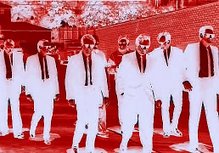Toni Morrison—who consistently proves with every new piece of her writing that I read why she is one of my favorite writers—talks of fact and truth in The Site of Memory. One complex sentence forms a stunning philosophy about the difference between fact and truth that I find particularly interesting. She writes: "Because facts can exist without intelligence, but truth cannot."
What I take this to demonstrate is the value that human consciousness gives to truth. Truth becomes more than just the factual accounts of what happens and moves into something more. The facts of any situation are merely bits of information lingering in the memory of time. But truth is an organizing of the facts with a value judgment attached. It is an appraisal of the information and a presentation of the lines with a stamp of approval; truth carries with it a specific human certificate of authenticity in regard to the fact that it has been processed and accepted by the human mind as actual. Many things that are not facts we take to be true: that love is good, justice is attainable, and that man is basically good. These are not pieces of information but are decisions. Facts are inherent, truth is decided and it is the human intelligence that Morrison mentions that makes this decision.
Thursday, November 15, 2007
Subscribe to:
Post Comments (Atom)


No comments:
Post a Comment